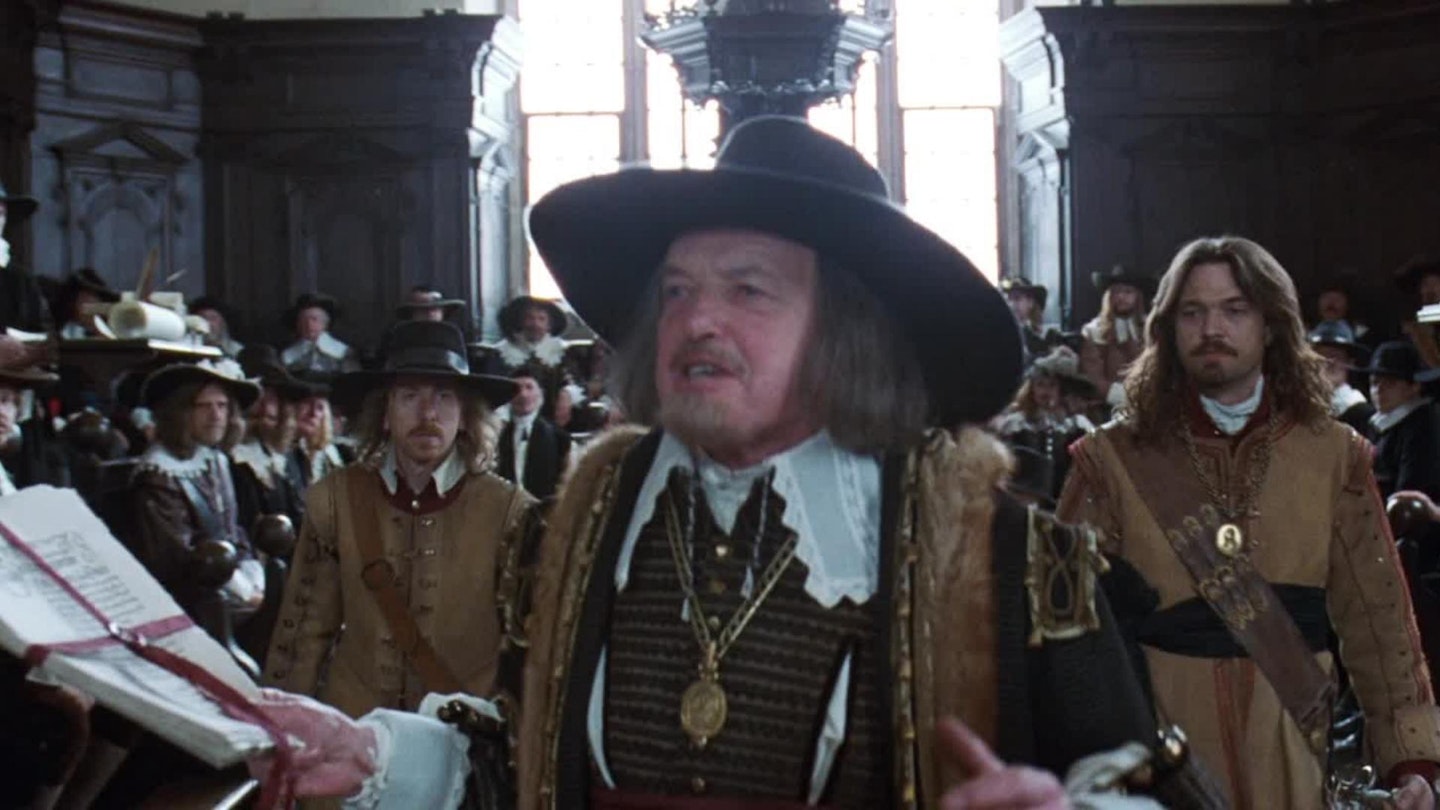For a nation that loves to live in the past, the British film industry seems to have all but phased out the historical epic that was so popular in the '60s and '70s.
This less extravagant voyage back to the 17th century and the English Civil War can't quite hold its own next to, say, the visually lavish likes of The Lion In Winter, but it certainly boasts a thoughtful and accessible script that engages with the political climate of the time.
It also defines the main protagonists as more than caricatures: Roth's pitiable Cromwell is guided by wrong-headed visions of right and justice, while Scott's Fairfax is a more conflicted figure, disillusioned by the monarchy but unable to fully sever himself from his own privileged roots.
Only the portrayal of Fairfax's wife, Lady Anne (Williams), comes over as rather idealised. Budgetary constraints and a troubled production mean the film can't help feeling slightly penned-in. Still, it's a modest victory in desperate times.
